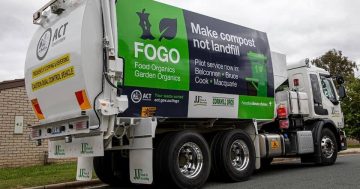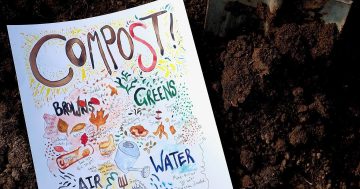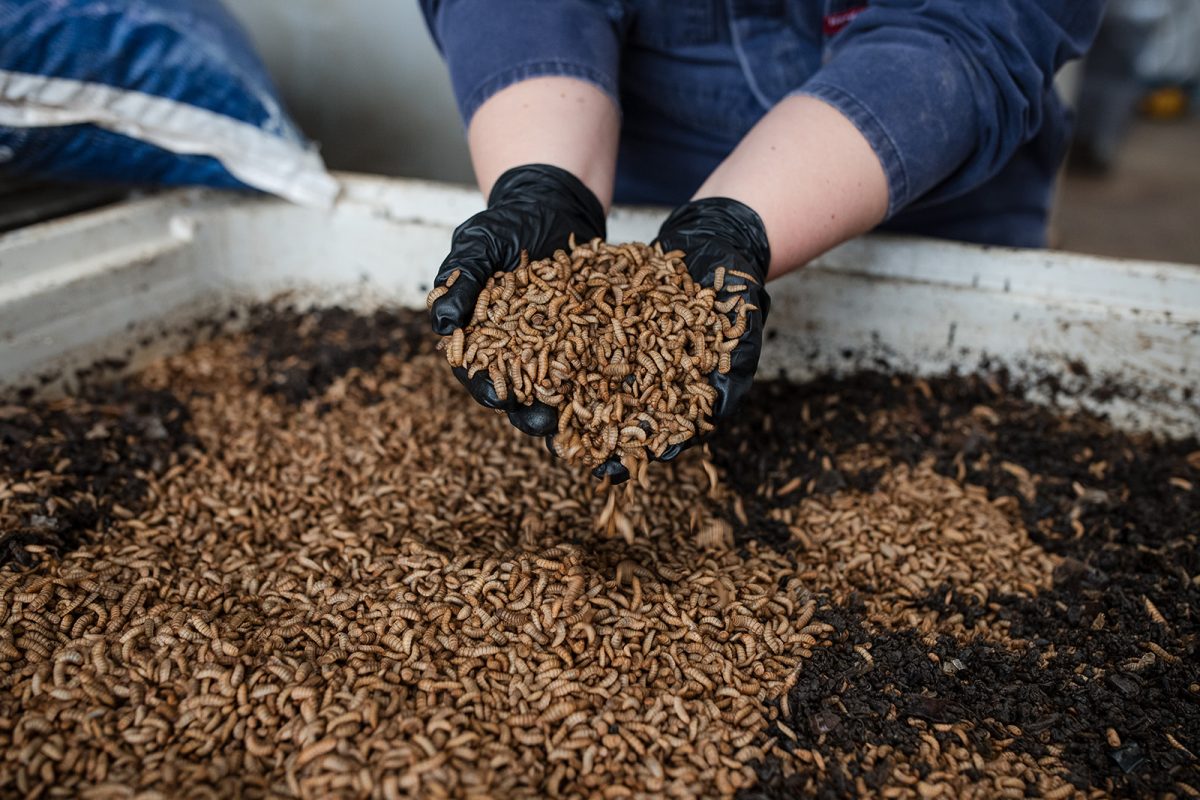
Hard at work. Photo: GoTerra.
Officials from the Michigan State Department have headed back to the US with a plan to get on top of the state’s food waste, which involves billions and billions of maggots.
And they got the idea from here in the ACT, in Hume.
In 2017, Canberra’s Olympia Yarger came up with an innovative way to solve an “infrastructure problem all of Australia is staring down the barrel of”.
She launched GoTerra in a 280 sqm shed in Fyshwick with a workforce primarily of black soldier flies – or rather, their greedy, worm-like babies.
“We receive the waste just like the tip does, and then we process that waste – removing the packaging if it comes in packaging – and then we feed it to insects. Those insects eat the food waste, and we take the resulting insects and insect manure and sell it,” Olympia explains.
GoTerra moved to Hume in 2020 and now employs 67 people in Canberra and at bases in Albury, Sydney and Melbourne.
Last year, Olympia contributed $1 million to upgrade the current Hume site to allow more trucks to bring in more food waste and combat the site’s flooding issue. Olympia plans to invest a further $1.5 million in upgrades this year.
Each year, it converts 3000 tonnes of food waste into compost for on-selling to farmers and agricultural businesses as fertiliser. Through a deal with the Woolworths Group, the ACT’s Woolworths stores provide six tonnes a week.
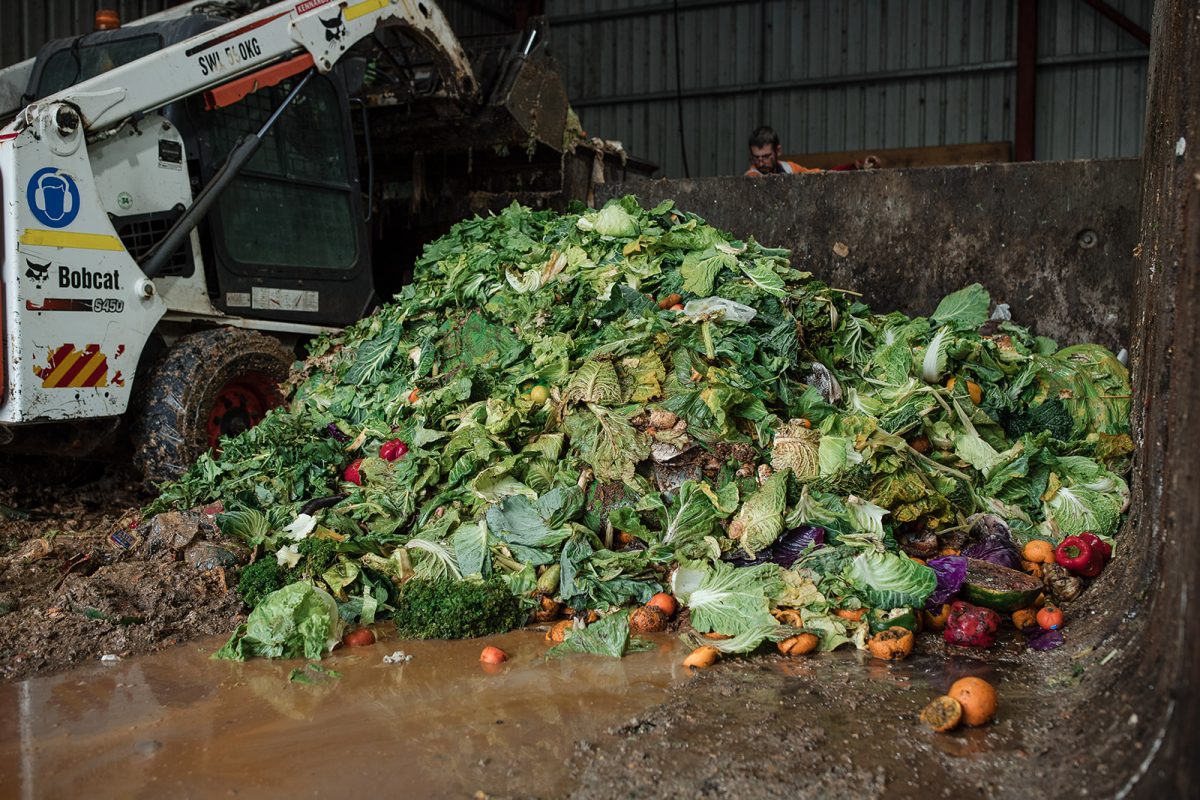
A black soldier fly’s favourite thing. Photo: GoTerra.
“It’s been a long road because … this is not technology that existed anywhere else in the world,” Olympia says.
The “heavy lifting” is done by the tiny black soldier fly, chosen as a “non-pest species” you’ll find around any compost bin (and that won’t cause plague to break out if it escapes).
“It’s just like any animal farming enterprise. Everything’s kept in climate-controlled rooms, and the fly numbers are all very controlled and constrained …We harvest the larva before they turn into flies, and we only retain a certain portion of the flies for egg production.”
For 10 days, the maggots are fed food waste before it’s all extracted and packaged for sale.
The flies are estimated to reduce emissions from landfill by “up to 97 per cent”, and produce a third less emissions than regular composting.
“When you think about what the ACT’s goals for emissions around manufacturing and agriculture, we’re actually a fairly big contributor,” Olympia says.
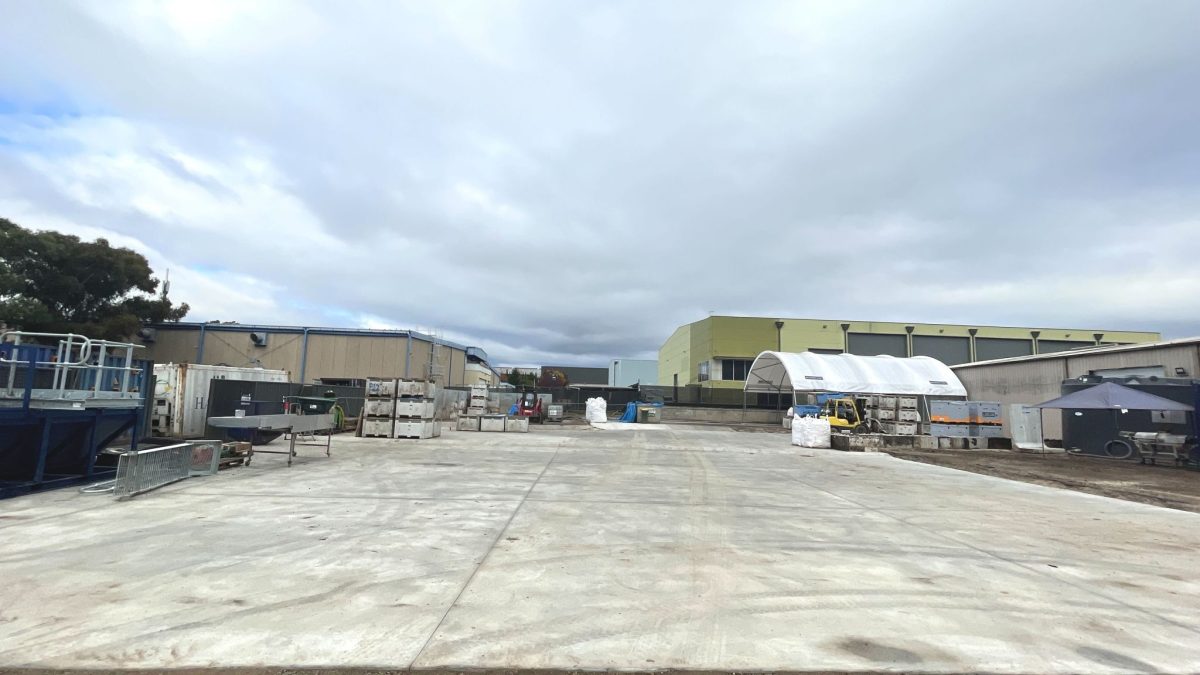
Fresh concrete was poured at the Hume site last year to allow more trucks to bring in more waste. Photo: GoTerra.
When Olympia was a kid, growing up in Canberra, the Mugga Lane tip was “just a flat area of land” and not the mountain of buried waste it is today. To her, it’s clear something will have to change at some point.
“Climate change gets the biggest nod in the conversation because everyone’s like, ‘Oh, it’s such an environmentally sound solution, circular economy, and lots of buzzwords’. But the reality is we have an infrastructure problem across Australia where we have aging landfills.
“What do we do when Mugga Lane is full? Because the ACT is only so big and to transport waste long distances out of town costs ratepayers a lot of money.”
As it is, GoTerra’s pitch is enough to have attracted plenty of international interest in recent years, too.
“We’ve had a lot of interest from the UK, Scotland in particular, Singapore and Indonesia, and we’ve just had the Michigan State Department come for a visit,” she says.
“All our cities have grown a lot bigger … and we’re at a crisis point.”













